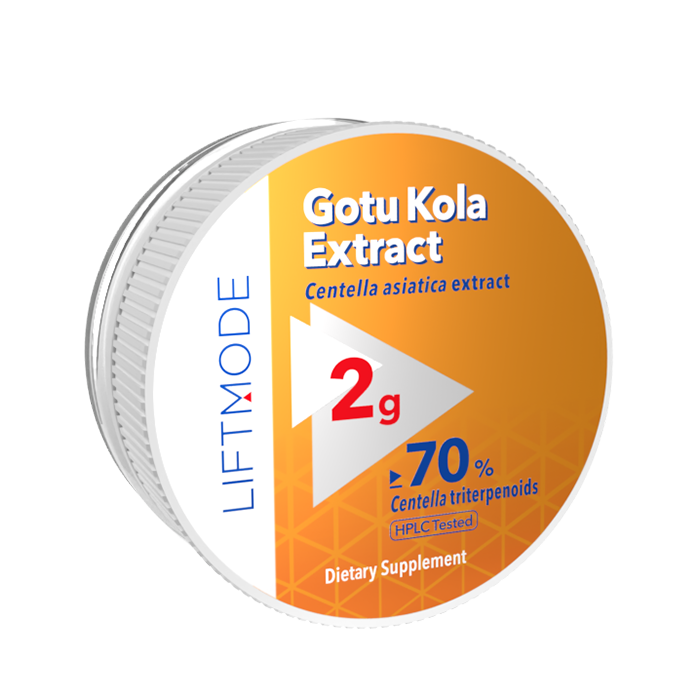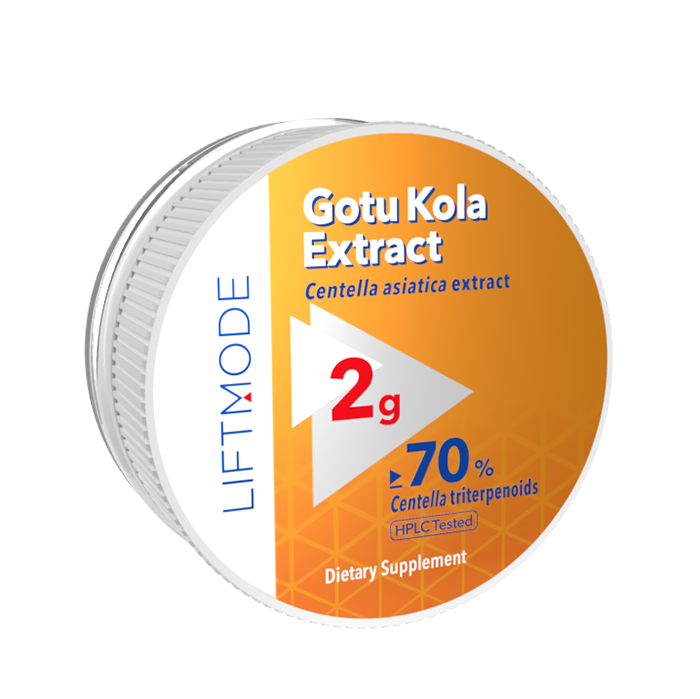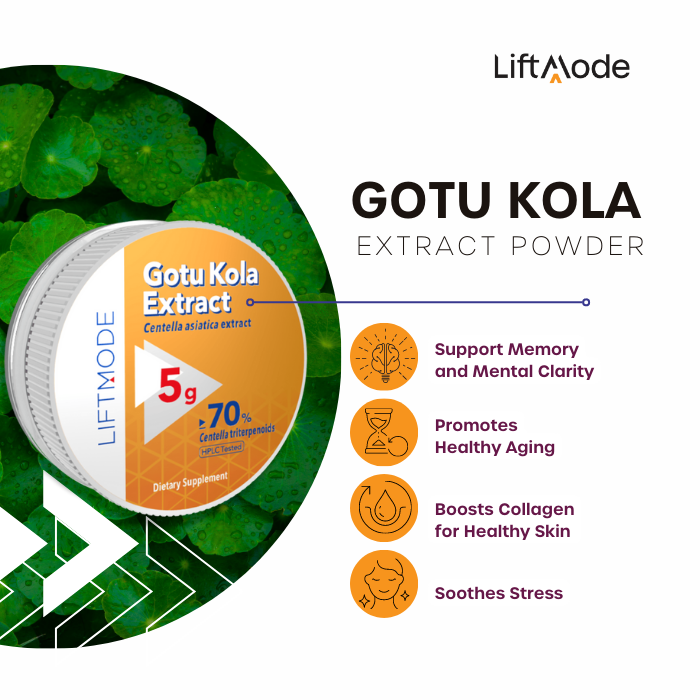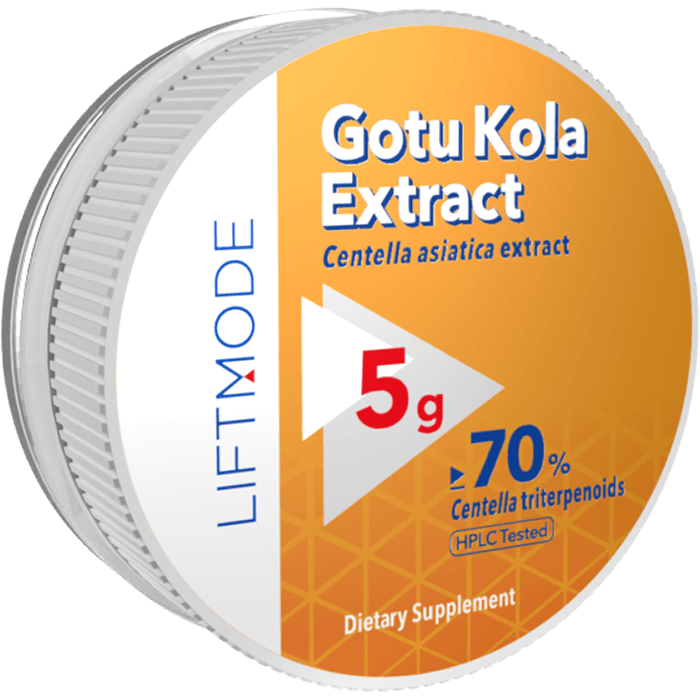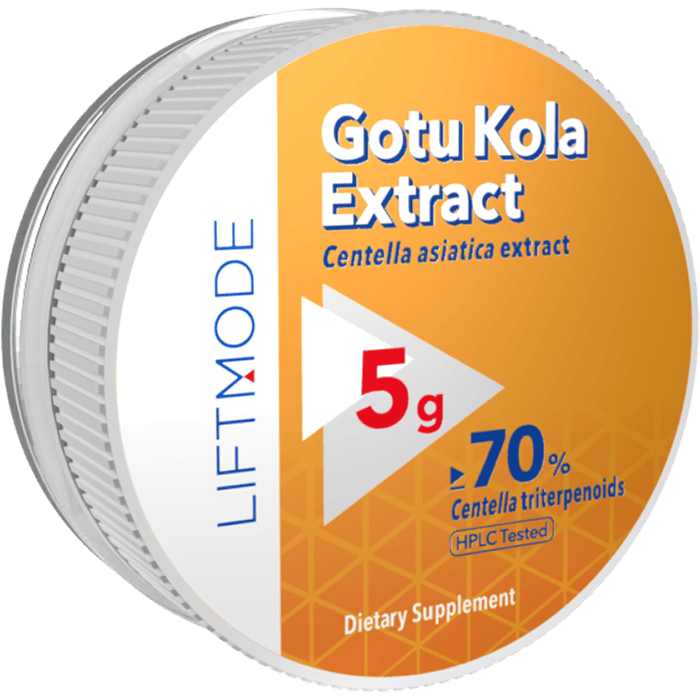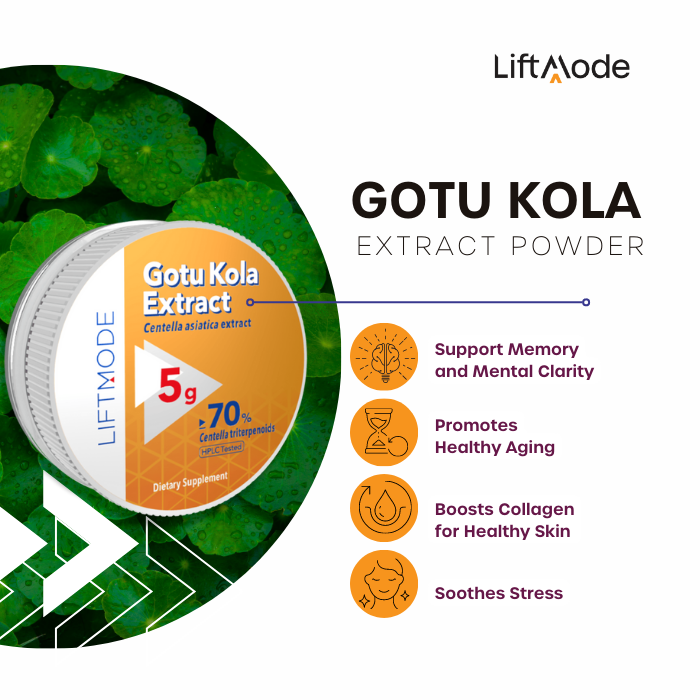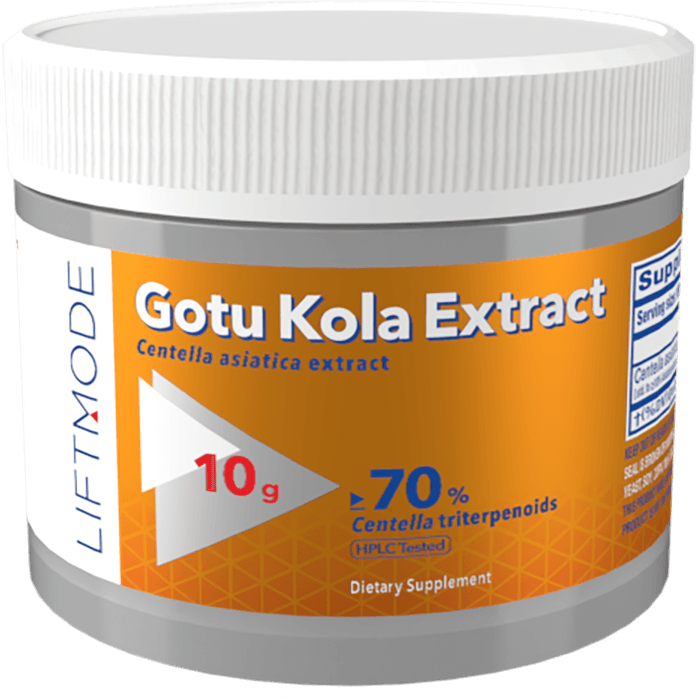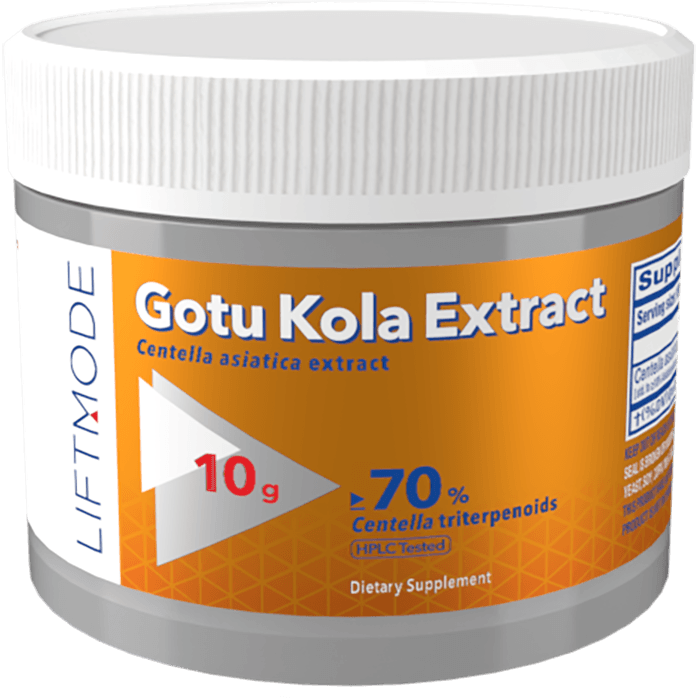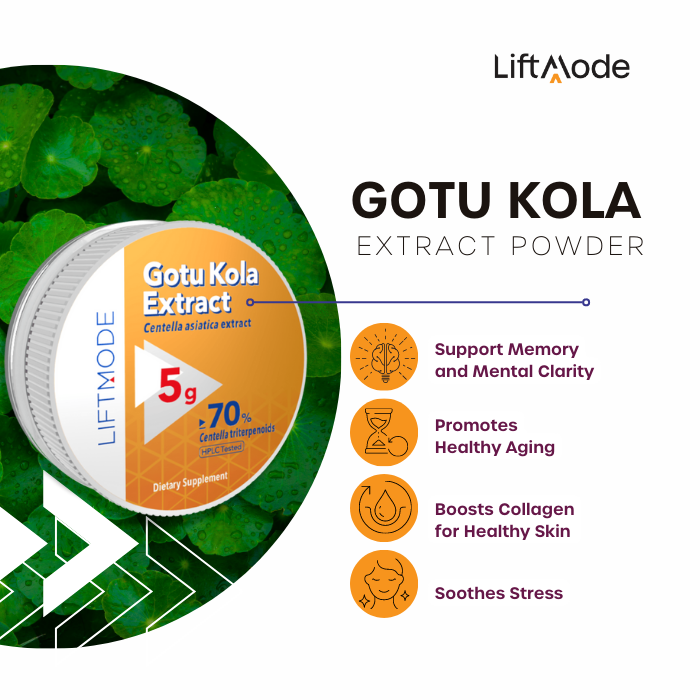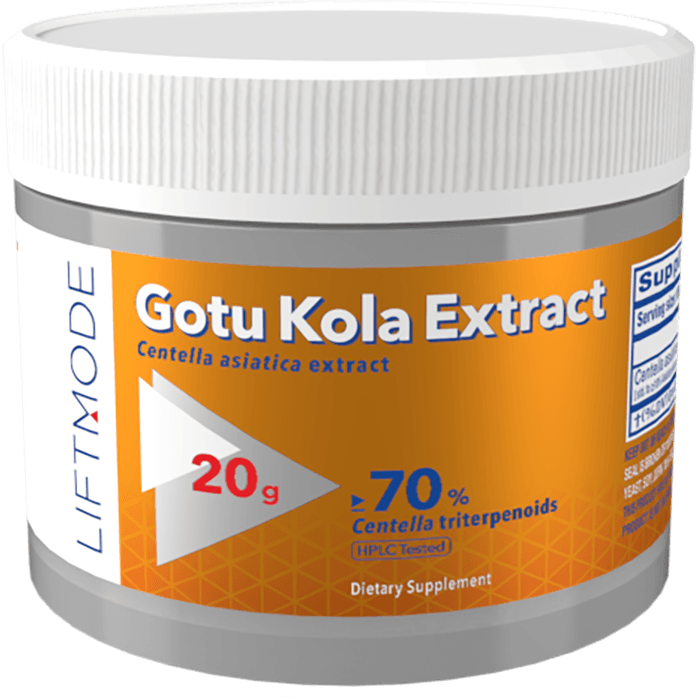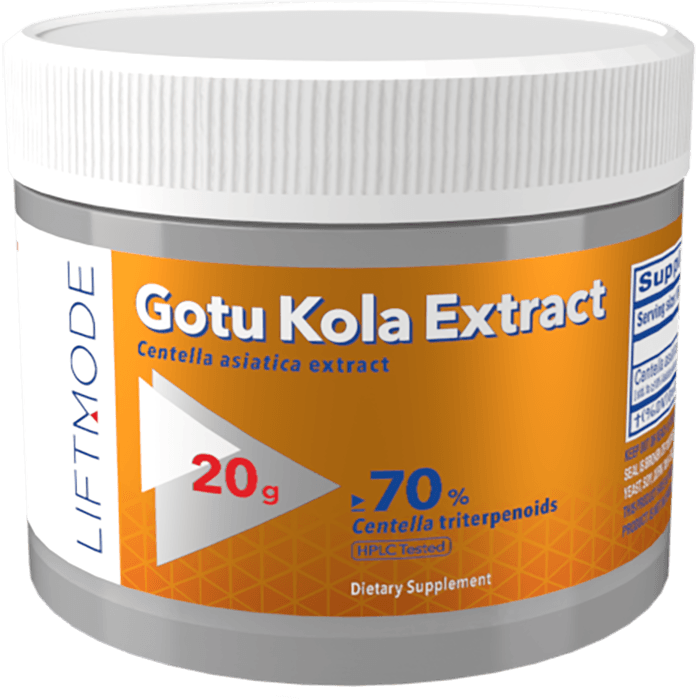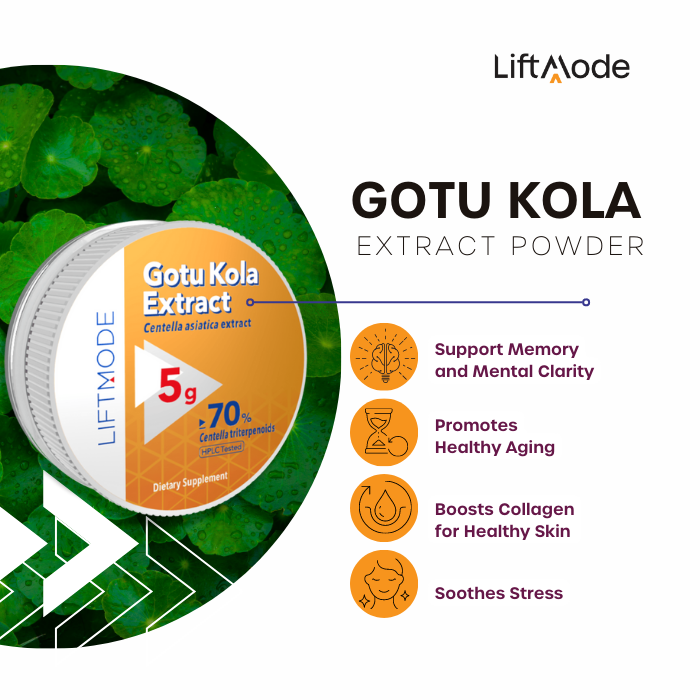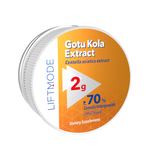-
Free from additives and fillers
-
Gluten Free
-
HPLC Lab tested
-
Money back guarantee
-
Non-GMO
-
Science backed
-
Vegan
Scientifically Tailored Ingredients
Gotu Kola Extract
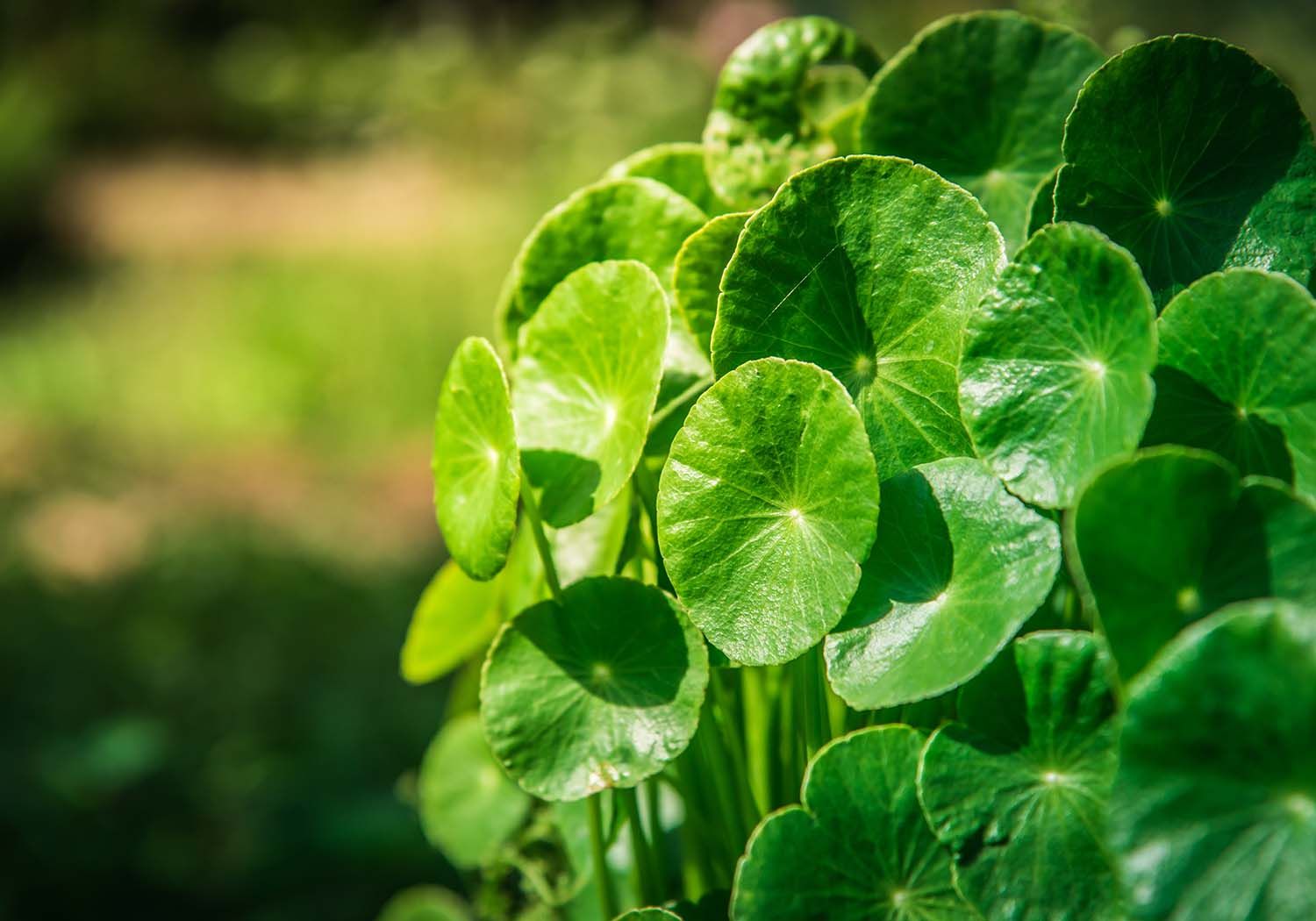
Gotu Kola Extract
Gotu Kola (Centella asiatica) is a perennial found in marshes throughout most of Asia. The primary active components of Gotu Kola are triterpenoid saponins Asiaticoside, Asiaticoside B, and Madecassoside, which have potent mood lifting, relaxing, and soothing, irritation-easing effects on both the mind and the body. Traditionally, Gotu Kola is used for stress and mood, but recent studies indicate the triterpenoid saponins may have a more complex role than expected. Gotu Kola increases cerebral GABA levels, which is the primary inhibitory neurotransmitter. The saponins have been shown to increase serotonin, dopamine and norepinephrine levels in the brain. Gotu Kola may also have long-term benefits. The saponins and their metabolites are believed to promote neurogenesis by enhancing expression of BDNF (Brain Derived Neurotrophic Factor) and NGF (Nerve Growth Factor) which may promote learning as well as mood. - Promotes Mental Clarity - Calming and Stress Relief - Neuroprotective Benefits
Collapsible content
References
References
